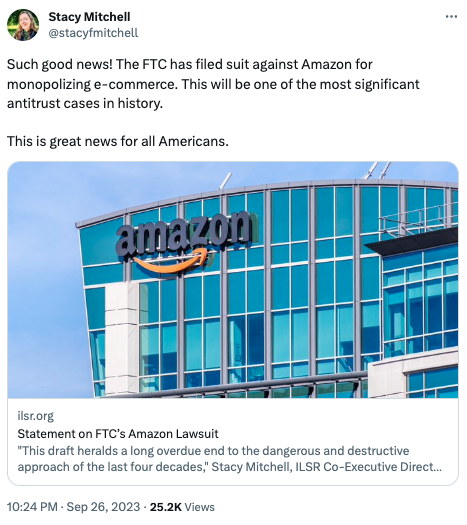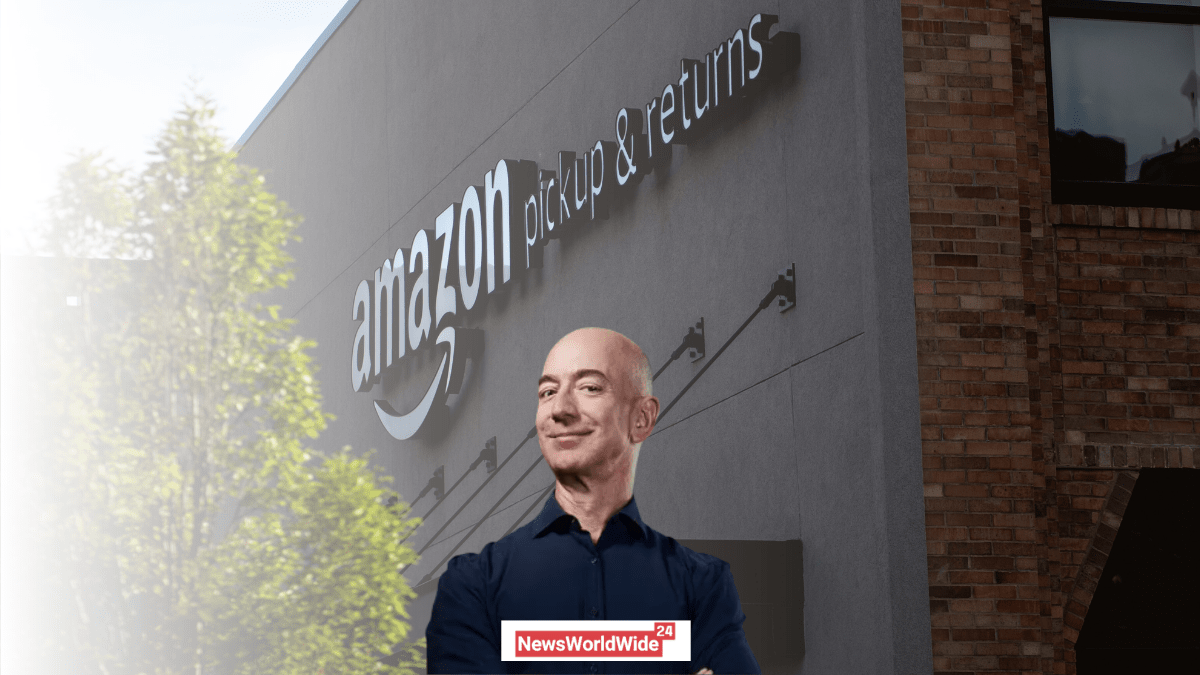In a significant turn of events, e-commerce giant Amazon finds itself at the center of a high-stakes federal antitrust lawsuit initiated by the United States Federal Trade Commission (FTC).
Widely known as the “Amazon Illegal Monopoly’ Case,” this legal battle represents the culmination of years of extensive investigation into Amazon’s business practices.
In response, Amazon vehemently disputes the FTC’s interpretation of fundamental principles governing the retail industry.
Understanding the Amazon illegal Monopoly Case
The crux of the FTC’s complaint hinges on the accusation that Amazon has deliberately engaged in practices designed to thwart the emergence of new competitors, effectively establishing an “illegal monopoly.”
Specifically, the FTC alleges that Amazon has undertaken actions that hinder competition in areas such as pricing, product variety, and quality.
The commission contends that Amazon has artificially raised the barriers to entry for both existing and potential competitors.
Implications of the Amazon illegal Monopoly case
This lawsuit against Amazon is poised to be a protracted legal battle with far-reaching consequences for the e-commerce industry and the regulatory oversight of tech giants.
The outcome will be closely scrutinized by industry stakeholders and concerned consumers, as it holds the potential to reshape the landscape of e-commerce in the United States.
The FTC’s Allegations in the Amazon illegal Monopoly Case
At the heart of the FTC’s complaint lies the assertion that Amazon has engaged in practices aimed at hindering the rise of new competitors, effectively resulting in what they deem an “illegal monopoly.”
In particular, the FTC argues that Amazon has taken measures that stifle competition concerning pricing, product selection, and product quality.
The commission contends that Amazon has artificially erected barriers to entry for both current and potential competitors.
Amazon’s Response to the Amazon illegal Monopoly Case
In response to the lawsuit, Amazon has voiced concerns about the potential adverse impact on consumers stemming from the FTC’s demands.
The company maintains that it diligently works to provide customers with access to products at competitive prices.
While individual vendors set their own prices, Amazon underscores its investment in tools and education to empower sellers to offer competitive prices.
The company also offers advertising options to assist sellers in making informed pricing decisions, asserting that it does not exert undue pressure on vendors to advertise.

The Implications of the Amazon illegal Monopoly Case
This lawsuit against Amazon is poised to be a protracted legal battle with far-reaching implications for the e-commerce industry and the regulatory oversight of tech giants.
The outcome will be closely monitored by industry stakeholders and concerned consumers, as it has the potential to reshape the landscape of e-commerce in the United States.
Why is Amazon considered a monopoly |Amazon illegal Monopoly Case
The Amazon Triple-Down Monopoly reveals that rather than acquiring and stifling small business owners’ agencies, Amazon has gained power over the global retail landscape.
In this process, countless small businesses worldwide have positioned themselves as part of Amazon’s image.
Is Amazon a monopoly or perfect competition | Amazon illegal Monopoly Case
Amazon illegal Monopoly Case : The term “perfect competition” refers to a market structure where multiple companies are involved, and there is no control over the market .
In contrast, a monopoly market structure consists of only one firm that determines the price and supply of goods and services.
Is Amazon a legal monopoly | Amazon illegal Monopoly Case
Despite its explosive growth, Amazon has lagged behind in fulfilling the U.S. Department of Justice’s monopoly threshold, which is defined as having more than 50% market share.
Amazon claims that by next year, it will account for roughly 4% of all retail sales in America and only 1% of the $25 trillion global market.
According to market, its share of the e-commerce market in the United States is 37.7%. However, it represents only 10% of the entire American retail market online, with 90% still dominated by brick-and-mortar stores.

